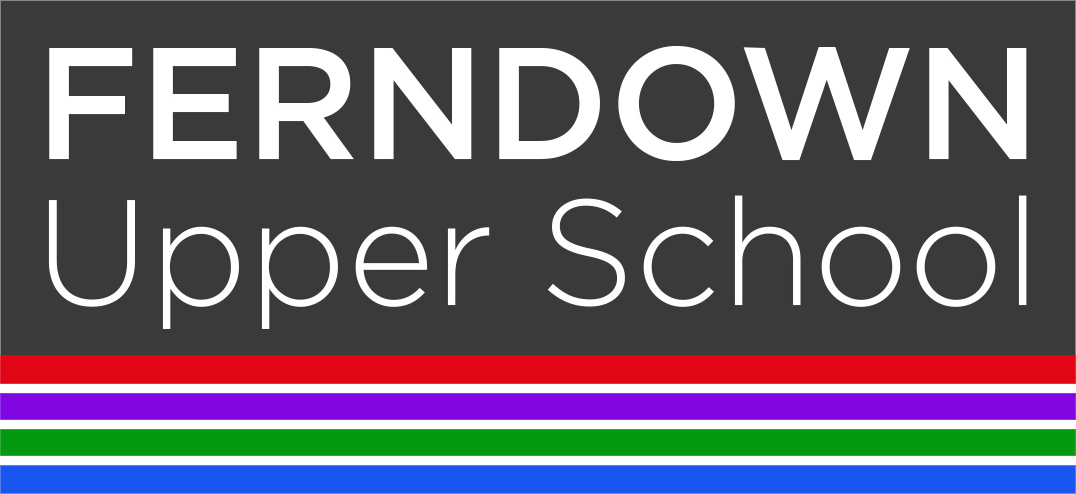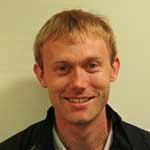Physical Education
Our mission statement: To develop the physical, emotional and social well-being of individuals, moral values as well as leadership skills whilst promoting lifelong participation in physical activity
In the Ferndown Upper School PE department we promote a healthy lifestyle and aim to build character and positive attitudes, improving self-esteem and self-confidence, giving children new skills to enable them to make a positive contribution inside and outside of school in a safe and enjoyable environment through the vehicle of Physical Education. Our program of study and fantastic facilities allows us to provide not only a stimulating, rich and challenging curriculum, but also a diverse one, which will give our pupils the opportunity to develop communication, teamwork and other leadership skills needed for future employment.
Watch this promotional video, created by one of our Student Media Team, and find out more about the PE Department.
Extension Tasks
We encourage all students from Year 9 up to Year 13 in the Sixth Form to get involved in extra-curricular activities. Our extensive programme of extra-curricular activities on and off the school site includes inter-school sports competitions, after school clubs and fixtures, water sport activities, residential trips and gifted and talented funded activities. See our up to date extra-curricular timetable in our clubs section.
Ferndown Upper School boasts a range of fantastic facilities including a 5 court sports hall, fitness room, gymnasium, 25m swimming pool, 4 squash courts, netball courts, tennis courts, a 400m running track and extensive playing fields.
The teaching staff within the Physical Education Department are very experienced in teaching all areas of the curriculum. Amongst the staff we have coached and taught pupils from beginners, up to National level standard.
Meet the PE Department Staff
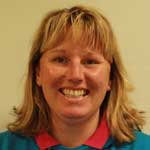
Mrs. E. Pemberton
Deputy Head of PE / Key Stage 5 Co-ordinator
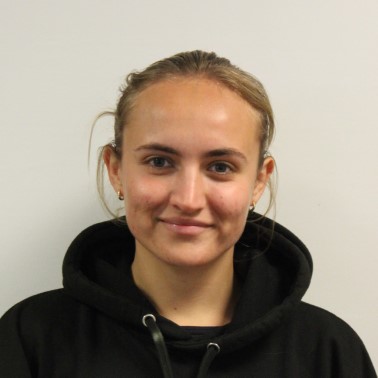
Miss. A. Hine
Deputy Head of PE / Key Stage 4 Co-ordinator

Mr. D. Hammett
Key Stage 3 & Sports Leaders Co-ordinator / Head of House

Mrs. C. Hicks
Ski Trip Co-ordinator / Head of Year
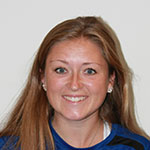
Miss. C. Small
Public Service Lead / JAE Programme Co-ordinator
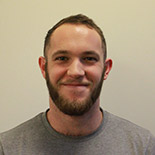
Mr. S. H. Simpson
PE SEND Lead
Curriculum
A high-quality physical education curriculum inspires all pupils to succeed and excel in competitive sport and other physically demanding activities. It should provide opportunities for pupils to become physically confident in a way which supports their health and fitness. Opportunities to compete in sport and other activities build character and help to embed values such as fairness and respect.
Aims
The National Curriculum for Physical Education aims to ensure that all pupils:
• develop competence to excel in a broad range of physical activities
• are physically active for sustained periods of time
• engage in competitive sports and activities
• lead healthy, active lives
Clubs
We have an extensive selection of Physical Activities clubs available, from table tennis to rugby. Take a look at our activities list over on our clubs page here.
JAE Programme
We support talented athletes in their chosen sport, find our more by clicking here
Key concepts & processes
• Outwitting an opponent / Accurate Replication
• Making and applying decisions
• Developing skills and performance
• Developing Physical and Mental capacity
• Making informed choices about healthy and active lifestyle
• Evaluating and improving
Core PE
Students will experience a variety of sports when they arrive at Ferndown Upper School in year 9, which will be compulsory. In years 10 and 11 they have the opportunity to continue with practical core PE if they have not opted to take this as an examination subject. If this is the case they will opt into a range of activities that suit their class and needs to enhance the enjoyment of this subject. Throughout their core PE students will experience the key concepts and processes for the Physical Education curriculum, which are
• Outwitting an opponent
• Making and applying decisions
• Developing skills and performance
• Developing Physical and Mental capacity
• Making informed choices about healthy and active lifestyle
• Evaluating and improving
NCFE Level 2 Health & Fitness
This course is the equivalent of a GCSE from a level 2 Pass and above. The course covers 8 key content areas which are assessed through a theory exam and coursework project. The exam is sat in the summer of Year 11. The coursework project will also start in year 11 and will be completed by March. When students are not doing their project or timetabled in a classroom for their exam prep they will be doing practical PE.
Edexcel GCSE PE
Students have paper 1 and paper 2 for their exam which counts as 60% of their overall grade. Students undertake various sports throughout the year and their best three will be taken. Their three sports will be one individual sport, one team sport and one optional choice. In addition to this students have a small coursework project to complete (Personal Exercise Plan) and this contributes to their overall grade. The PEP will start at the end of year 10 and be completed by the first term on year 11. Students should note that it is compulsory to attend at least one after school sports club a week and be involved in inter-house competitions as both of these offer opportunity for assessments that count towards their final GCSE grade.
Careers in Physical Education
There is a wide range of jobs available in this sector. Recruitment opportunities into careers in Physical Education, is always competitive.
There are a number of career settings that you can become involved with and progress in. These include Sport, Health, Fitness, leisure and teaching.
Below are some ideas of the different types of career opportunities you could get involved with:
Professional Sport: Performer/player, Fitness coach, Sports coach, exercise & sport scientists, performance data analysist, dietitian, Media & marketing consultant, website design, sport development officer, Sport commentator, Club physio/doctor, catering manager, assistant coach and youth team coach.
Health: Doctor, Physio, sports therapist, sports massage, nurse and working in other areas of the NHS.
Fitness: Gym manager, Personal trainer, yoga instructor, fitness instructor, professional fitness coach.
Teaching & Public Services: Primary school teacher, secondary school PE teacher, Sports Coach, Police officer, Fire fighter, Royal Marines, Army
Leisure: Swimming teacher, Duty Manager, Sports coach, lifeguarding, leisure centre management, outdoor activities instructor, children’s party co-coordinator
Labour Market Information – LMI
It is useful to look at the labour market when thinking about a career in Sport, Fitness, health and leisure. The links below provide good quality information about the LMI in the industry and this is only growing with a large emphasis being placed nationally on health and well-being
https://www.bbc.co.uk/bitesize/articles/zmfkrj6
https://www.lboro.ac.uk/study/school-college-liaison/resources/wim/ssehs/sportnew/
https://www.apprenticeships.gov.uk
Learning Pathways
The are lots of different pathways into the vast range of careers in sport, fitness, health and leisure where the national governing bodies offer various coaching qualifications, Premier training offer various fitness instructing and personal training qualifications, but in addition to these examples where these would be more apprenticeship based there are also academic pathways as well. The different pathways are highlighted below:
Post-16 examples: A Level in Physical Education, Level 3 in Sport & physical activity, T level in Health, Level 3 Public Services.
Degree examples: Sports coaching, Sport & exercise science, Sport psychology, Sport rehabilitation, Sports management, Physiotherapy, Sports therapy.
Apprenticeship examples: Lifeguard, recreation assistant, personal trainer, fitness instructor, sports coach, events assistant, outdoor activity instructor, teaching assistant.
Watch this promotional video, created by one of our Student Media Team, and find out more about the PE Department.
In the Ferndown Upper School PE department we promote a healthy lifestyle and aim to build character and positive attitudes, improving self-esteem and self-confidence, giving children new skills to enable them to make a positive contribution inside and outside of school in a safe and enjoyable environment through the vehicle of Physical Education. Our program of study and fantastic facilities allows us to provide not only a stimulating, rich and challenging curriculum, but also a diverse one, which will give our pupils the opportunity to develop communication, teamwork and other leadership skills needed for future employment.
Watch this promotional video, created by one of our Student Media Team, and find out more about the PE Department.
Meet the PE Department Staff

Mrs. E. Pemberton
Deputy Head of PE
Health and Fitness Co-Ordinator

Mrs. C. Hicks
GCSE PE Co-coordinator
Head of Year

Mr. J. Collins
Head of Level 2 Provision & Head of Year

Miss. A. Hine
Level 2 Sports Science Co-ordinator & Teacher of PE & Maths

Mr. S. Harray-Simpson
Teacher of PE & Computing

Mr. D. Hammett
Level 2 Public Services Co-ordinator & Teacher of PE & RE
Curriculum
A high-quality physical education curriculum inspires all pupils to succeed and excel in competitive sport and other physically demanding activities. It should provide opportunities for pupils to become physically confident in a way which supports their health and fitness. Opportunities to compete in sport and other activities build character and help to embed values such as fairness and respect.
Aims
The National Curriculum for Physical Education aims to ensure that all pupils:
• develop competence to excel in a broad range of physical activities
• are physically active for sustained periods of time
• engage in competitive sports and activities
• lead healthy, active lives
Key concepts & processes
• Outwitting an opponent / Accurate Replication
• Making and applying decisions
• Developing skills and performance
• Developing Physical and Mental capacity
• Making informed choices about healthy and active lifestyle
• Evaluating and improving
Core PE
Students will experience a variety of sports when they arrive at Ferndown Upper School in year 9, which will be compulsory. In years 10 and 11 they have the opportunity to continue with practical core PE if they have not opted to take this as an examination subject. If this is the case they will opt into a range of activities that suit their class and needs to enhance the enjoyment of this subject. Throughout their core PE students will experience the key concepts and processes for the Physical Education curriculum, which are
• Outwitting an opponent
• Making and applying decisions
• Developing skills and performance
• Developing Physical and Mental capacity
• Making informed choices about healthy and active lifestyle
• Evaluating and improving
NCFE Level 2 Health & Fitness
This course is the equivalent of a GCSE from a level 2 Pass and above. Component 1 is a theory exam and component 2 is a coursework project. The exam will start in March of year 10 with students having the opportunity to retake in November of year 11. The coursework project will start in year 11 and will be completed by March. When students are not doing their project or timetabled in a classroom for their exam prep they will be doing practical PE.
Edexcel GCSE PE
Students have paper 1 and paper 2 for their exam which counts as 60% of their overall grade. Students undertake various sports throughout the year and their best three will be taken. Their three sports will be one individual sport, one team sport and one optional choice. In addition to this students have a small coursework project to complete (Personal Exercise Plan) and this contributes to their overall grade. The PEP will start at the end of year 10 and be completed by the first term on year 11. Students should note that it is compulsory to attend at least one after school sports club a week and be involved in inter-house competitions as both of these offer opportunity for assessments that count towards their final GCSE grade.
Careers in Physical Education
There is a wide range of jobs available in this sector. Recruitment opportunities into careers in Physical Education, is always competitive.
There are a number of career settings that you can become involved with and progress in. These include Sport, Health, Fitness, leisure and teaching.
Below are some ideas of the different types of career opportunities you could get involved with:
Professional Sport: Performer/player, Fitness coach, Sports coach, exercise & sport scientists, performance data analysist, dietitian, Media & marketing consultant, website design, sport development officer, Sport commentator, Club physio/doctor, catering manager, assistant coach and youth team coach.
Health: Doctor, Physio, sports therapist, sports massage, nurse and working in other areas of the NHS.
Fitness: Gym manager, Personal trainer, yoga instructor, fitness instructor, professional fitness coach.
Teaching & Public Services: Primary school teacher, secondary school PE teacher, Sports Coach, Police officer, Fire fighter, Royal Marines, Army
Leisure: Swimming teacher, Duty Manager, Sports coach, lifeguarding, leisure centre management, outdoor activities instructor, children’s party co-coordinator
Labour Market Information – LMI
It is useful to look at the labour market when thinking about a career in Sport, Fitness, health and leisure. The links below provide good quality information about the LMI in the industry and this is only growing with a large emphasis being placed nationally on health and well-being
https://www.bbc.co.uk/bitesize/articles/zmfkrj6
https://www.lboro.ac.uk/study/school-college-liaison/resources/wim/ssehs/sportnew/
https://www.apprenticeships.gov.uk
Learning Pathways
The are lots of different pathways into the vast range of careers in sport, fitness, health and leisure where the national governing bodies offer various coaching qualifications, Premier training offer various fitness instructing and personal training qualifications, but in addition to these examples where these would be more apprenticeship based there are also academic pathways as well. The different pathways are highlighted below:
Post-16 examples: A Level in Physical Education, Level 3 in Sport & physical activity, T level in Health, Level 3 Public Services.
Degree examples: Sports coaching, Sport & exercise science, Sport psychology, Sport rehabilitation, Sports management, Physiotherapy, Sports therapy.
Apprenticeship examples: Lifeguard, recreation assistant, personal trainer, fitness instructor, sports coach, events assistant, outdoor activity instructor, teaching assistant.
